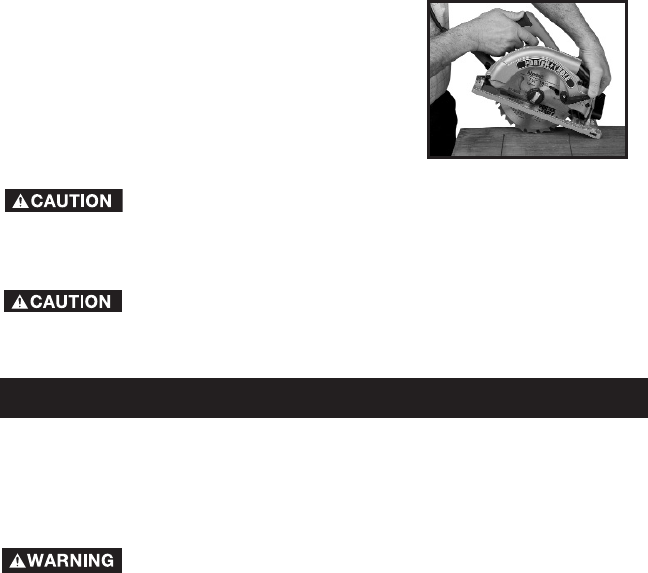
13
KEEP TOOL CLEAN
Periodically blow out all air passages with dry compressed air. All plastic
parts should be cleaned with a soft damp cloth. NEVER use solvents to
clean plastic parts. They could possibly dissolve or otherwise damage the
material.
Wear ANSI Z87.1 safety glasses while using compressed air.
FAILURE TO START
Should your tool fail to start, check to make sure the prongs on the cord
plug are making good contact in the outlet. Also, check for blown fuses or
open circuit breakers in the line.
LUBRICATION
This tool has been lubricated with a sufficient amount of high grade lubricant
for the life of the unit under normal operating conditions. No further
lubrication is necessary.
BRUSH INSPECTION AND LUBRICATION
For your continued safety and electrical protection, brush inspection and
replacement on this tool should ONLY be performed by an AUTHORIZED
PORTER-CABLE SERVICE STATION or a PORTER-CABLE·DELTA
FACTORY SERVICE CENTER.
At approximately 100 hours of use, take or send your tool to your nearest
authorized Porter-Cable Service Station to be thoroughly cleaned and
inspected. Have worn parts replaced and lubricate with fresh lubricant. Have
new brushes installed, and test the tool for performance.
Any loss of power before the above maintenance check may indicate the
need for immediate servicing of your tool. DO NOT CONTINUE TO
OPERATE TOOL UNDER THIS CONDITION. If proper operating voltage is
present, return your tool to the service station for immediate service.
MAINTENANCE
POCKET CUTS (PLUNGE CUTTING)
A pocket cut is one which must be made inside
the area of the workpiece and not starting from
the edge. Mark the area clearly with lines on all
sides. Start near the corner of one side and
place the front edge of the saw base firmly on
the workpiece. Hold the saw up so that the
blade clears the material. Confirm that you have
adjusted the blade properly for the depth of cut.
Push the telescoping guard lever all the way
back so the blade is exposed (Fig. 21).
Keep your hands and fingers away from the blade.
Start the motor and lower the blade into the work. After the blade has cut
through, and the base rests flat on the work, follow the line to the corner.
Let the saw come to a complete stop before removing it
from the workpiece.
Use a keyhole or bayonet saw to cut clean corners.
Fig. 21

















